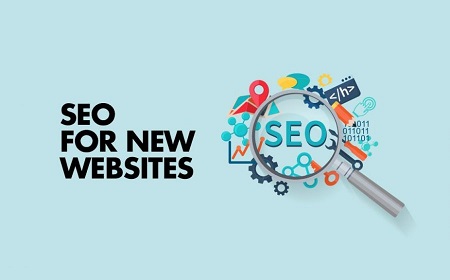
In today’s digital landscape, having a strong online presence is crucial for small businesses. Search Engine Optimization (SEO) plays a vital role in helping your website rank higher on search engines like Google, driving more traffic and potential customers to your site. Here’s a comprehensive guide filled with actionable SEO tips specifically tailored for small business websites.
Understanding SEO: Why It Matters for Small Businesses
SEO is the process of optimizing your website to improve its visibility in search engine results. For small businesses, effective SEO can lead to increased website traffic, better brand awareness, and ultimately, more sales. Here are some essential SEO strategies to implement:
1. Keyword Research: The Foundation of SEO
Identifying the right keywords is critical for your SEO strategy. Use tools like Google Keyword Planner, Ahrefs, or SEMrush to find relevant keywords related to your business. Focus on:
- Long-Tail Keywords: These are longer, more specific phrases that often have less competition. For example, instead of “coffee shop,” try “organic coffee shop in downtown.”
- Local Keywords: Incorporate location-specific terms to target local customers. For instance, “best pizza in [your city].”
2. Optimize Your Website Structure
A well-structured website is crucial for both user experience and SEO. Make sure to:
- Use Clear Navigation: Organize your site with intuitive menus and categories to help users find information easily.
- Create a Sitemap: This helps search engines understand your site’s structure and index your pages more effectively.
3. On-Page SEO: Optimize Your Content
On-page SEO involves optimizing individual pages to rank higher and earn more relevant traffic. Key areas to focus on include:
- Title Tags and Meta Descriptions: Ensure each page has a unique title tag and meta description that include your primary keywords.
- Header Tags: Use H1, H2, and H3 tags to organize your content hierarchically and improve readability.
- Content Quality: Write high-quality, informative content that addresses your audience’s needs and includes relevant keywords naturally.
4. Mobile Optimization
With an increasing number of users accessing websites via mobile devices, it’s essential to ensure your site is mobile-friendly. Google prioritizes mobile-responsive designs, so:
- Use Responsive Design: Ensure your website adapts seamlessly to different screen sizes.
- Test Mobile Usability: Use tools like Google’s Mobile-Friendly Test to check your site’s performance on mobile devices.
5. Local SEO: Target Your Community
For small businesses, local SEO is paramount. To enhance your local search visibility:
- Claim Your Google My Business Listing: This free tool helps you manage how your business appears on Google Search and Maps.
- Encourage Customer Reviews: Positive reviews can boost your local rankings and build trust with potential customers.
- Optimize for Local Keywords: Use keywords that include your location in your content, title tags, and meta descriptions.
6. Create High-Quality Backlinks
Backlinks from reputable sites can significantly enhance your site’s authority. To build backlinks:
- Guest Blogging: Write articles for other websites in your industry to earn backlinks.
- Collaborate with Local Influencers: Partner with local bloggers or influencers to promote your business and earn links.
7. Monitor and Adjust Your Strategy
SEO is an ongoing process. Use tools like Google Analytics and Google Search Console to track your website’s performance. Monitor key metrics such as:
- Organic Traffic: Check how many visitors come from search engines.
- Bounce Rate: A high bounce rate may indicate that your content isn’t meeting user expectations.
- Keyword Rankings: Keep track of how well your keywords are performing and adjust your strategy as needed.
FAQs About SEO tips for Small Business Websites
1. How long does it take to see results from SEO?
SEO is a long-term strategy. While some changes may yield results in a few weeks, significant improvements can take several months to a year.
2. Do I need to hire an SEO expert?
While hiring an SEO expert can be beneficial, many small business owners can implement effective SEO strategies on their own by using online resources and tools.
3. What is the difference between SEO and paid advertising?
SEO focuses on organic search results, while paid advertising involves paying for visibility through ads. Both can be effective but serve different purposes.
4. Can social media impact my SEO?
While social media does not directly affect SEO rankings, it can drive traffic to your site and increase brand awareness, which can indirectly boost your SEO efforts.
5. How often should I update my website?
Regularly updating your website with fresh content and optimizing existing pages can improve your SEO. Aim for at least a few updates each month.
Conclusion
Implementing these SEO tips can help your small business improve its online visibility and attract more customers. By focusing on keyword research, on-page optimization, local SEO, and continuous monitoring, you’ll be well on your way to achieving higher search engine rankings and driving growth for your business. Start optimizing today and watch your online presence flourish!

Hey There. I found your blog using msn. This is a very well written article. I’ll make sure to bookmark it and come back to read more of your useful information. Thanks for the post. I will definitely return.